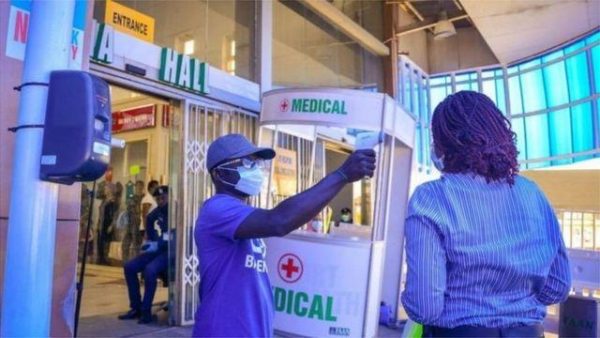Cargo Defence Fund: An Intervention Masked In Obscurity

By Kenneth Jukpor
Cargo Defence Fund (CDF) also known as The Fund, is an initiative of Nigerian Shippers’ Council (NSC). It is a mutual scheme to provide cover for particular risks as agreed upon by members, focus is on Nigerian importers and exporters.
The Fund is a company limited by guarantee set up as a Cargo Protection & Indemnity (Cargo P & I) scheme. It was established to mitigate losses incurred by shippers, especially small time importers and exporters, who may not have the financial muscle to pursue their legitimate maritime claims.
The Fund was established to provide a viable solution to problem faced by the shippers as the NSC established two similar service schemes or products, initially known as the Cargo Protection and Indemnity Fund and the Cargo Litigation Fund. These two were situated under the Legal Unit of the Council. The schemes were later merged and formalized into the present Cargo Defence Fund with a special unit created to form its secretariat.
Despite becoming operational in 2001 and being managed and administered by a Board of Trustees representing major interest groups and stakeholders, The Fund remains in obscurity for a large portion of Nigerian importers, exporters, freight forwarders and other vital stakeholders in trade and supply chain.
When quizzed about the viability of Cargo Defence Fund, the Director General of Multimix Academy, Dr. Obiora Madu said, “The Fund is in operation because they say that it is. I will only speak on the importance or the need to have it. It is an international initiative which cuts cross across so many countries of the world because they have your quotation at hand and they will use their international network to handle it. Right now, they say that it is operational but the challenge is – who knows the CDF is there?”
Dr. Obiora stressed that the management of The Fund is just like many things of Nigerian government is left to handle. “The thing is sitting down there, yet it isn’t producing the results. As at the time I heard it, I should have heard about it much earlier. As a trade consultant I should have heard about this fund long before I did. That is how lots of initiatives come up internationally and the local once nobody knows about them,”
He lamented that smaller countries like Togo and Ghana have understood the need to constantly create awareness of such initiatives.
“For small things like this, you begin to here the jingles passing information and all that in other countries. Information dissemination is the challenge and that if you check very well you find out that most people don’t know about The Fund”, Obiora added.
Although the Fund has top trade stakeholders as representatives including: Manufacturers Association of Nigeria (MAAN), Nigerian Association of Chambers of Commerce, Industry, Mines and Agriculture (NACCIMA), NSC, Nigerian Maritime Law Association (NMLA) and the Nigeria Insurers’ Association (NIA), its patronage remains minimal as a result of lack of awareness.
As the Multimix boss posited, MMS Plus correspondent was surprised that an operator in the port sector like the President of Africa Association of Professional Freight Forwarders and Logistics of Nigeria (APFFLON), Mr. Frank Ogunojemite, said, “I never knew Shippers’ Council had such initiative and I believe most people wouldn’t be aware of this. How do people patronize these services with such level of obscurity?”
He admonished the Council to engage in massive sensitization campaigns to ensure the freight forwarders, importers and exporters are aware of such commendable initiatives and patronize them.
Meanwhile, speaking with MMS Plus on the Fund, the Chairman, Bayelsa and Rivers Shippers Association, Mr. Offon Udofia revealed that the shippers association has been discussing with insurance companies to see how we can revive that CDF.
“I also spoke with the Head of CDF in Shippers’ Council. CDF is very essential as it would boost shippers confidence in doing business in Nigeria. In Rivers and Bayelsa, we already initiated discussions with an Insurance firm on the issue of container deposits and the return of Cargo Defence Fund (CDF).
According to him, The Fund can play a huge role in easing the burden on shippers when it comes to utilizing non seaworthy containers for import and export, and also addressing challenges of payment.
Services provided by The Fund include; Legal / Technical Advice, Payment of Risk Management Services, Foreign Legal Representation, Cover for Specific Risks as Agreed, Quality Information Services, General Risk Management Advice and Convene Alternative Dispute Resolution Forum.
Claims procedure under the Fund:
A complainant writes formally to the Secretary, Cargo Defence Fund, NSC or through the Executive Secretary/CEO, NSC, attaching a set of copies of the relevant shipping documents including a Bill of Lading, Commercial Invoice, Parking List, etc. and any other document that may assist in handling the complaint.
In addition, a shipper i.e. importer/exporter involved in export/import business in Nigeria is expected to take note of the following information provided hereunder concerning what information/document that would be needed to pursue his claim in the event of damage, theft/short landing of cargo.
Irrespective of the party complained against, it is the duty of the shipper in all cases to notify the parties concerned in writing immediately, of the existence of discrepancy before taking delivery of goods. When goods arrive at the port or warehouse in discrepant condition, the shipper should urgently notify the parties concerned for reasons stated below:
Marine insurance claim: prompt notification is necessary to enable the Insurance Company concerned to promptly appoint a Surveyor or Loss Adjuster to evaluate the cargo or consignment to determine the extent of damage and the degree of redress needed.
Where a shipper is claiming directly from a carrier or his agent in the event of damage or loss occasioned by breach of Carriage of Goods contract, the shipper is duty bound to write the carrier, immediately, placing him on notice and inviting the carrier’s representative to carry out a survey and write out a damage report. Where it is a case of short landing of cargo, it is the carrier’s responsibility to issue a short landing certificate in that regard.
Where a shipper is claiming from a terminal operator, where the consignment arrives the terminal, a discrepancy certificate is issued to confirm the extent of damage and admitting or apportioning liability. This is done at the instance of the shipper.
Recall that prior to the establishment of The Fund; the Council noticed a very high rate of abandonment of legitimate claims by indigent Nigerian shippers who could not afford the costs of pursuing their legitimate claims either in the court of law or through arbitration as may be prescribed in the carriage contracts.







